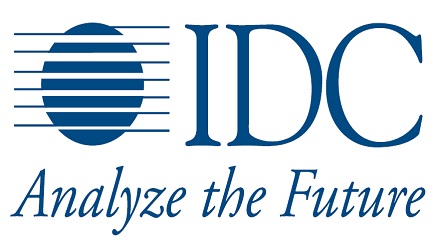E-Business
IDC Says PC Outlook Remains Cautious, Despite Modest 3Q Gains

Worldwide PC shipments are expected to fall by -2.7% in 2014, an improvement from the previous forecast of -3.7%, according to the International Data Corporation (IDC) Worldwide Quarterly PC Tracker.
Although third quarter results were a few points ahead of forecast with shipments down only -0.5% from the prior year, most regions and market participants saw this as a short-term gain rather than as a sign of stronger growth in the medium- or long-term.
Mature regions continue to grow while a rebound in emerging regions has taken longer (due to a later impact from tablets as well as slower economics and commercial replacements).
According to IDC report, Western Europe and Japan performed better than expected in the third quarter, but the gains were driven by a rebound from last year and short-term factors such as building fourth quarter inventory earlier in the year and continuing Windows XP replacement activity.
Despite the relative short-term strength, mature regions are expected to see PC shipments decline again in 2015 and contract slightly through the end of the forecast.
The consumer market came in slightly ahead of projections in the third quarter, but shipments are still expected to decline -5% in 2014. Pressure from tablets seems to be waning as penetration rises and tablets move to smaller sizes and lower price points.
However, competition for disposable income from smartphones and phablets is rising. In addition, the market was boosted in the third quarter by factors such as a rise in low-cost systems in many markets and a rebound in Western Europe, which helped restore volume to earlier levels but not without cost in value of shipments.
“The expansion of entry-level models, encouraged by Windows 8 + Bing systems, has helped improve consumer volume in recent quarters and should extend past the fourth quarter,” said Jay Chou, senior research analyst, Worldwide PC Trackers. “Chromebooks are similarly boosting the low-end commercial segment. However, the market is still recovering to near stable volumes with no significant growth in the forecast.”
“In the best case for PCs, we’d see a significant wave of replacements as users who spent on phones and tablets in recent years decide they really need to update their PC. Features like touch or convertibility, as well as Windows 10 could make systems more versatile and appealing, along with lower prices,” said Loren Loverde, Vice President, Worldwide PC Trackers.
“However, we’ve seen steady progress on prices and new designs over the past year, and replacements are stabilizing PC shipments but not boosting total volume.
“Going forward, as younger generations become more mobile and Web oriented, and emerging regions in particular prioritize converged devices (or economy in number of devices to purchase), the PC market will continue to face tough competition and be more focused on replacements, with limited potential for growth.”
E-Business
Natasha: TMG Demands Probe of Alleged Data Breach in Failed Recall

Transition Monitoring Group (TMG) has called on the National Data Protection Commission (NDPC) to investigate what it described as an alleged unauthorised and fraudulent use of personal data of constituents in the failed recall attempt of Natasha Akpoti-Uduaghan, Senator representing Kogi Central in the National Assembly.

The organisation expressed concern that voters’ personal information may have been illegally harvested and deployed without their consent to generate signatures for the recall petition.
Speaking at a press briefing in Abuja, Auwal Rafsanjani, chairman, TMG, observed that such an act amounts to a gross violation of the Data Protection Act, which he said, also undermines public trust in the country’s democratic process.
He called for a forensic verification of the Voter Identification Numbers (VINs) submitted in the recall process, using the Bimodal Voter Accreditation System (BVAS).
TMG’s position came a few days after the Independent National Electoral Commission (INEC) dismissed the petition seeking to recall Natasha for failing to meet constitutional requirements.
The commission had revealed that following a thorough review of the signatures and thumbprints submitted by petitioners, only 208,132 signatories were verified, falling short of the required 237,278.
Rafsanjani, however, expressed concern on how more than 50 per cent of total registered voters in Kogi Central quickly turned up to sign the petition for the recall of Natasha in a country, he said, has historically experienced a worrisome level of voter apathy.
According to him, the incident calls for deeper insight that can only be brought about through thorough investigation.
“While it is noted that INEC has terminated the process at the stage of counting signatories to the petition as the number of signatories did not meet the constitutional requirements for further verification, the seeming fraud of harvesting voters’ details from anywhere to file the petition cannot be overlooked,” he said.
Rafsanjani added: “We are also deeply worried that against the provision of the Data Protection Act, personal data of citizens of Kogi Central Senatorial District have been harvested and used without their consent. This fraud must be investigated by the National Data Protection Commission to assure Nigerians that their personal data will indeed be protected as envisaged by the law.
“Further investigations to verify and authenticate the Voter Identification Number (VIN) through the BVAS must be carried out. Where investigations reveal a fraudulent process, the petitioners must be brought to justice to serve as deterrent to those who would be willing to be induced and used by politicians for this kind of charade in the future.”
But the NDPC, has, reiterated commitment to enhancing data privacy among public and private bodies in the country.
Dr. Vincent Olatunji, national commissioner and CEO, said the commission aims to enforce stricter data protection measures to safeguard sensitive public and private information, as well as promote regulatory compliance in line with relevant laws.
E-Business
NDPC to Strengthen Data Privacy Practices in Nigeria

National Data Protection Commission (NDPC) has reaffirmed its commitment to strengthening data privacy practices across Nigeria’s public and private sectors.

Speaking at a regional capacity-building workshop in Katsina for ICT personnel from the north-western states, Dr Vincent Olatunji, national commissioner and chief executive officer of the NDPC, said the commission is stepping up enforcement of data protection regulations in line with national laws.
Olatunji, represented by Mr Princewill Nnaka, head of the Commission’s Enforcement Unit, noted that the NDPC is focused on raising awareness of data rights, improving staff training, and partnering with development agencies to boost capacity.
He said stronger data protection measures would help reduce incidents of cyberbullying, online financial fraud, and loss of lives due to breaches of privacy.
“Data protection is a global concern,” he said. “Our goal is to ensure Nigeria aligns with international standards in the safeguarding of personal data.”
Also speaking at the event, Naufal Ahmed, director general, Katsina State Directorate of ICT (KATDICT), said the training aimed to equip participants with the technical knowledge required to implement the Nigeria Data Protection Act (NDPA) 2023.
He added that the initiative would also enable participants to serve as Master Trainers and Data Protection Officers (DPOs) in their respective institutions.
The three-day programme drew 40 participants, including four officers each from Kaduna, Kebbi, Jigawa, Sokoto, and Zamfara States, as well as 16 officials from various ministries, departments, and agencies in Katsina State.
E-Business
CJN Warns Judicial Officials against Data Breaches, Cyber Attacks

Kudirat Kekere-Ekun, Chief Justice of Nigeria, has cautioned judicial officials to be vigilant against data breaches, cyber threats and vulnerabilities in online systems as the judiciary continues to adopt digital technology.

Kudirat Kekere-Ekun, Chief Justice of Nigeria,
Kekere-Ekun gave the caution while delivering a keynote address at the opening ceremony of the 2025 National Workshop on Information and Communication Technology, held at the National Judicial Institute in Abuja.
The CJN represented by Salisu Garba, administrator, National Judicial Institute, emphasised that, as the judiciary handles cases, files, personal information, and classified government data, it remains a prime target for cyber attacks.
She underscored the need to safeguard the integrity of court records, warning that any breach could carry serious legal consequences and pose risks to national security.
She said, “Thus, a strong cybersecurity framework must be implemented to safeguard judicial data from unauthorised access, hacking, and corruption.”
The CJN emphasised the need for judicial ICT personnel to receive proper training in cybersecurity best practices, encryption methods, and secure data management.
She commended the National Judicial Council for its proactive efforts in modernising the judiciary, noting that the Judiciary Information Technology Policy stands out as a key initiative, offering a clear framework for the effective deployment and use of ICT in court operations.
In his welcome address, Olumoh Abdulazeez, Institute’s Secretary, emphasised that the annual workshop was aimed at equipping court personnel with the skills needed to keep pace with technological advancements.
“The effective integration of technology can greatly enhance access to justice and lower the barriers for litigants.’”

 News2 days ago
News2 days agoAOT Issues Bench Warrant against Sanusi, Aero Contractors MD

 News2 days ago
News2 days agoUS Cancels Visas for All South Sudanese Passport Holders

 News2 days ago
News2 days agoMeningitis Outbreak Kills 151 in Nigeria – NCDC

 News2 days ago
News2 days agoSERAP Calls on Tinubu to Reject $1.08Bn Loan, Probe Missing Funds

 News2 days ago
News2 days agoAfrimash Launches USSD Code to Revolutionize Poultry Farming and Combat Counterfeit Farm Produce

 News1 day ago
News1 day agoFG to Invest in Cutting-edge Broadcast Technology

 News1 day ago
News1 day agoHow KongaFM 103.7 Helped Cure My Insomnia Challenge

 Broadcasting1 day ago
Broadcasting1 day agoMTN Battles Netflix, Showmax with New Streaming Platform















